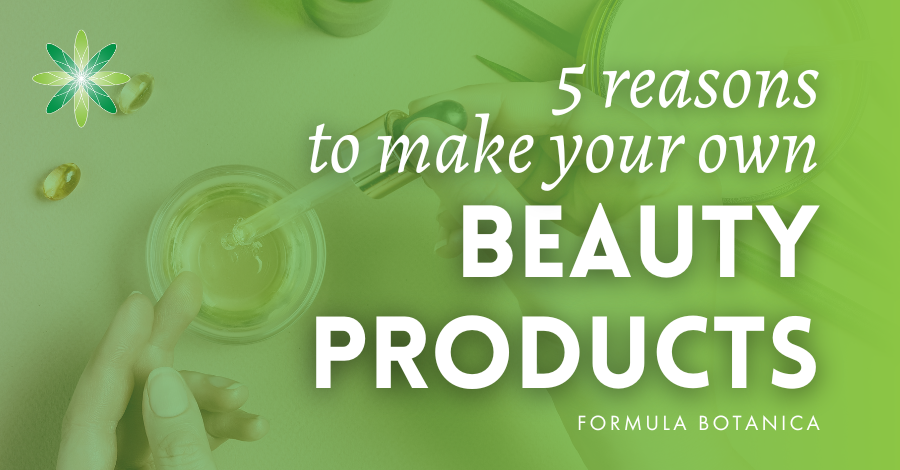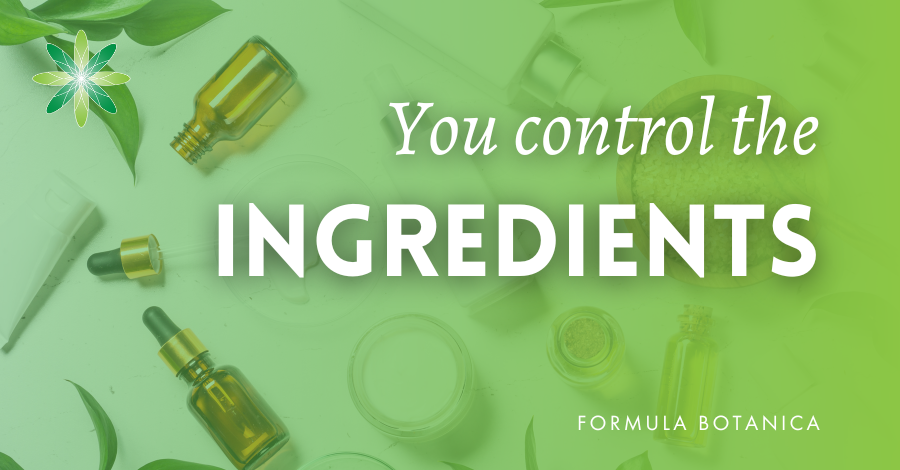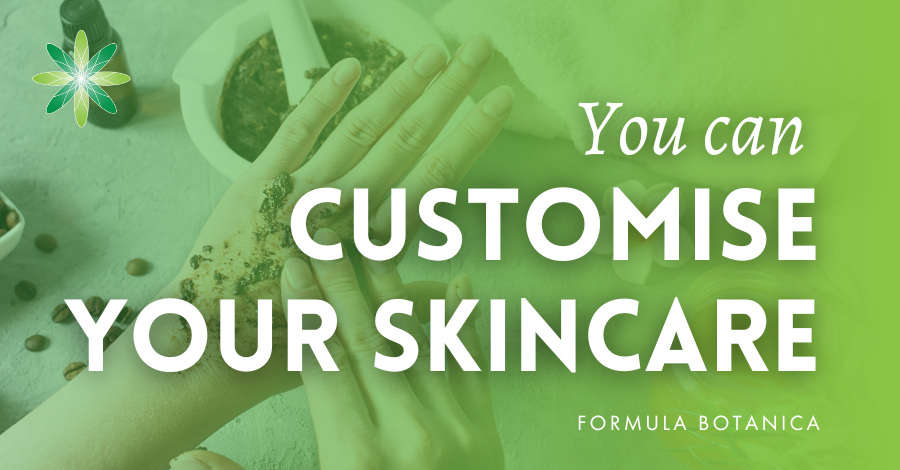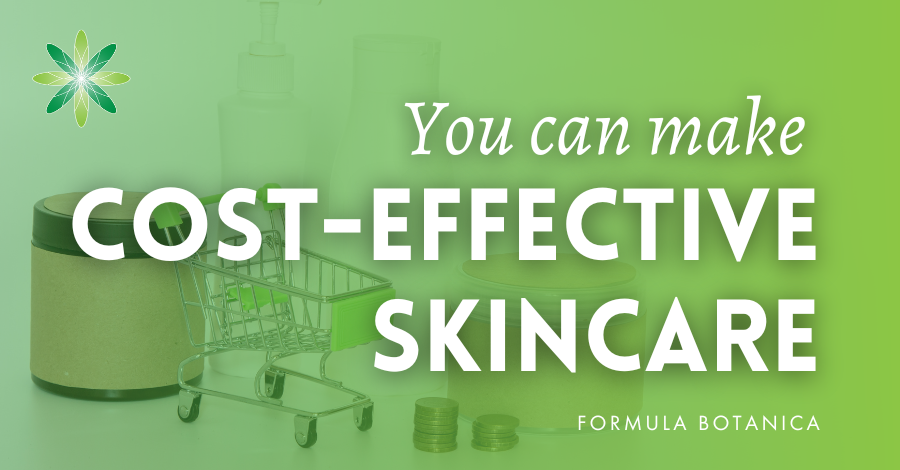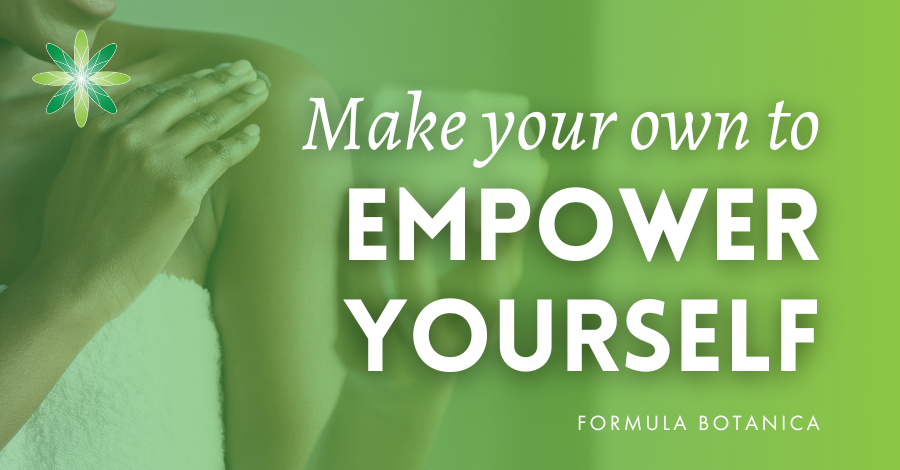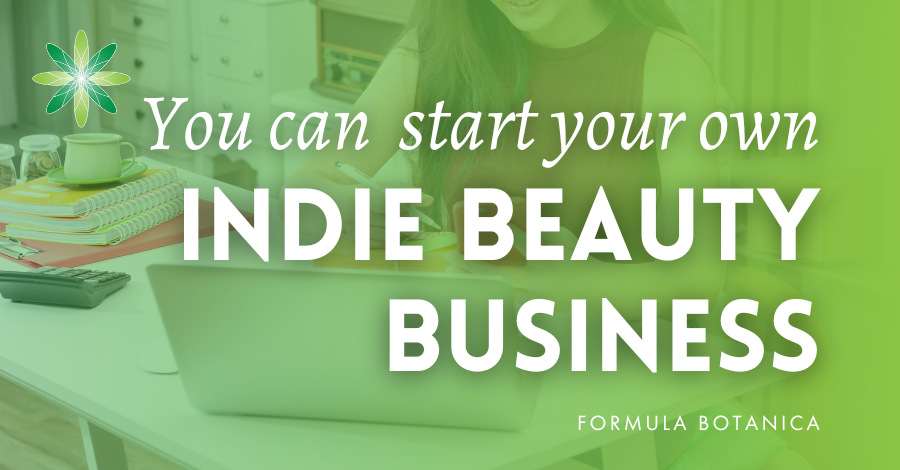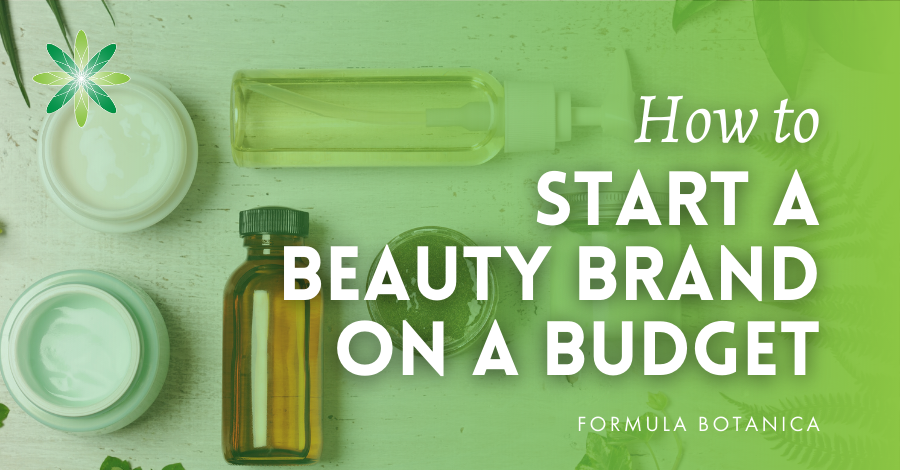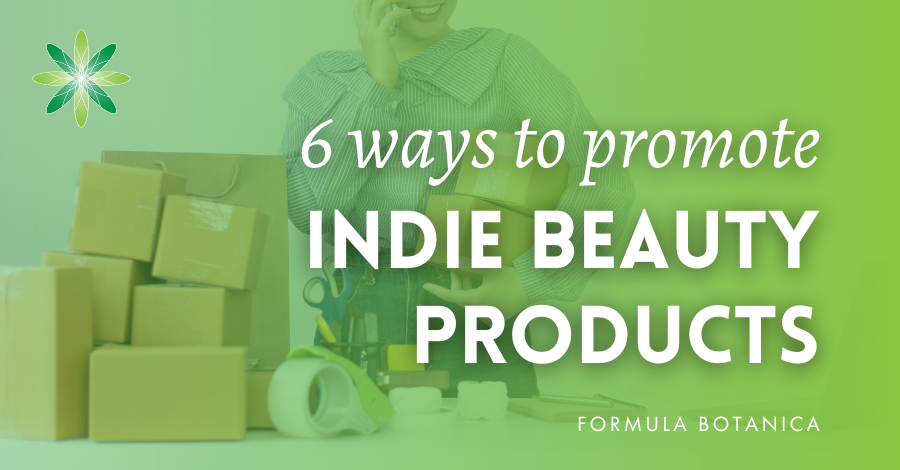In recent years, there has been a growing trend for people to choose natural and organic skincare products from indie beauty brands in preference to those with mainstream commercial names. Along with this trend comes the increasing popularity of making your own beauty products at home – DIY-ing beauty products in your kitchen.
Formula Botanica’s student and graduate community is evidence of this boom in natural and organic beauty products. With over 18,000 students from across the globe, our school community is at the forefront of driving the natural skincare and haircare revolution, which is now also influencing the mainstream beauty industry. Natural ingredients and green chemistry formulations are now something the big beauty brands are increasingly advocating.
In this article, we discuss the advantages of making your own beauty products at home, why they are a great alternative to store-bought products, and how easy it is to formulate your own products. So, whether you’re a total newcomer to formulation or considering taking a course in natural cosmetic formulation, keep reading to discover why taking control of your skincare by making your own at home is your next best step in your beauty routine.
5 Benefits of making your own skincare
1. You control the ingredients
When it comes to skincare products, it’s essential to know what ingredients you’re putting on your skin. Some cosmetic brands now decode their ingredients (INCI list) on their packaging, while others market their products by key ingredients such as vitamin C, plant-derived squalane or bakuchiol (a natural retinol alternative). However, not all ingredients’ lists are easy to understand if you are not trained in cosmetic formulation, and there are plenty of myths and misinformation circulating, as well as a lot of greenwashing when it comes to the sustainability of ingredients.
By making your own beauty products at home, you have the power to choose the ingredients and use those that work best for your skin type and needs. And, if you go one step further from following DIY recipes online to training in cosmetic formulation, you are even more empowered to understand the benefits of natural and organic ingredients.
Formula Botanica’s foundation course, the Diploma in Organic Skincare Formulation, trains you to research your ingredients thoroughly to understand both their functional and skin-beneficial roles and their compatibility with other ingredients. You will know not just instinctively but also expertly how to interpret the science of botanical ingredients such as aloe vera, chamomile, and shea butter and understand how they bring numerous benefits to a range of formulations.
2. You can customise your skincare
By controlling the ingredients in your skincare products, you can tailor your routine to your specific needs, resulting in healthier, happier skin. Making your own beauty products allows you to customise your skincare to suit your skin type and needs.
If you have sensitive skin, you can avoid certain ingredients that can cause irritation, such as fragrances, and decide on the level of AHA/BHAs in your facial cleansers, masks, and exfoliants. If you have dry skin, you can create a moisturising cream with peptides or ceramides and botanical oils and butters to nourish your skin.
The advantage of making your own skincare products is that you have the freedom to experiment with different ingredients and formulations. You can try adjusting the percentages of key ingredients in different formulations to find the perfect blend that works best for your skin.
Whether to add essential oils as natural fragrances or go fragrance-free, whether to keep things white or embrace the wonderful world of coloured cosmetics, by making your own beauty products, you make the choices rather than having them made for you.
You have complete freedom and creativity to make decisions about your formulations. We explain just how in this post:
Unleash your potential: you can formulate cosmetics without a chemistry degree.
At this point, it is important to stress the difference between making a DIY skincare recipe you find online and training in natural cosmetic formulation. There are key safety issues to learn about. For instance, you should never measure essential oil in drops (this is common practice in online formulations), and you need to understand good manufacturing practices (GMP) to ensure your cosmetics are created in a safe, sanitised space. Don’t worry, as none of this is difficult to learn, and most guidance is practical and easy to implement in a home-lab set-up. See our advice in this article:
3. You can make cost-effective cosmetics
Another significant benefit of making your own beauty products at home is that it can be a cost-effective alternative to buying commercial skincare products. While store-bought products can be convenient, they can also come with a hefty price tag. Many high-end skincare brands charge a premium for their products, and even drugstore brands can be pricey when you take a long, hard look at the basic ingredients inside.
Making your own beauty products at home can be surprisingly affordable. While there may be some initial investment in ingredients and equipment, it is minimal as you can easily start to formulate with just 6 cheap, basic tools like small jewellery scales, a few stirring rods, beakers, and a hotplate. Once you get going and love a particular beauty product you’ve made – and are offering your product to family and friends to try – you may consider purchasing your ingredients in bulk, which can further reduce your costs over time.
To put things into perspective, let’s consider the cost of a typical moisturiser. A high-end moisturiser from a luxury brand can cost upwards of $100 for a small jar, while a drugstore moisturiser can cost around $15 to $20. On the other hand, you can make your own moisturiser at home for a fraction of the cost. For example, a simple homemade anhydrous balm made with shea butter, jojoba oil, and essential oils can easily cost less than $10 per batch, and a single batch can last for weeks or even months.
In addition to the cost savings, making your own skincare products also allows you to avoid paying for expensive packaging and marketing. When you make your own products, you can choose simple, reusable packaging that doesn’t contribute to unnecessary waste.
4. You are empowered and have fun making your own skincare
There is a certain sense of pride and satisfaction that comes from using products that you have made yourself. Knowing that you created a product from scratch and that it is formulated to your specifications is incredibly rewarding. This can be especially true if you decide to share your creations with others, whether as gifts or as part of a business venture.
We have seen time and again just how empowering it is to make your own skincare at home, for yourself, to gift to friends and family, or to start an indie beauty business. Our graduate community is a testament to the sense of achievement you feel when you perfect the first cosmetic product you’ve formulated and see others enjoy using it. That ‘aha’ moment can last a lifetime.
You can explore where just some of our graduates have taken their brands in our round-up of beauty award winners and achievers. Read up about Formula Botanica graduate brands in your home country or region by browsing our online gallery of over 300 graduates and hear some of their stories in these podcasts:
Episode 157: From bootstrapping to award-winning beauty brand.
Episode 91: Nopalera – the brand mission of indie founder Sandra Velasquez.
5. You can start an indie beauty business
Making your own skincare products can also open up new business opportunities. There is increasing demand for natural and organic skincare; global revenue in the natural cosmetics segment of the beauty and personal care market is forecast to grow by over 33 percent between 2023 and 2027(i). If you enjoy making your own skincare products, turning your hobby into a business can be a great way to share your skills and creativity with others.
By starting small and creating a brand that reflects your values and unique selling points, you can build a loyal customer base and grow your business over time. See our article on some niches that indie beauty can explore successfully:
One of the advantages of starting a business using natural and organic ingredients is that you can tap into the growing demand for sustainable, ethical, and environmentally friendly products. Consumers are increasingly looking for products that are not only good for their skin but also good for the planet. By using natural and organic ingredients, you can create products that align with these values and appeal to conscious consumers.
In fact, indie beauty has shown itself to be nimble, flexible, and a leader in sustainable beauty across the board, from formulations to green packaging and business practices such as refill and return schemes. We cover the eco-pioneering opportunities and role of indie beauty in these podcasts and articles:
Episode 144: Celebrating eco-beauty pioneers.
Episode 150: Is it easier for new brands to be more sustainable?
5 Sustainable practices for your indie beauty brand.
In conclusion: why you should make your own beauty products
Creating your own skincare products gives you the freedom to innovate and create unique products that stand out in the market. Whether you are devising new formulations, experimenting with different ingredients, or developing packaging and branding that reflect your values and personality, there is plenty of scope for creativity and innovation in the skincare industry.
With the right skills and expertise, such as those we provide on our foundation Diploma and within our supportive community of likeminded students and graduates – together with a few key resources for your home lab and a passion for natural, organic skincare or haircare – there is no limit to what you can achieve in the world of indie beauty.
References
(i) Revenue of the natural cosmetics industry worldwide 2014-2027. Statistica, April 28th, 2023 figures.
FREE TRAINING
Learn how to become an
Organic Skincare Formulator
FREE TRAINING
How to become an
Organic Skincare Entrepreneur
FREE TRAINING
How to become an
Organic Skincare Entrepreneur
Leave us a comment

Liz was Formula Botanica’s Content Coordinator between August 2020-2024. Liz worked as a professional blogger, journalist and site developer for many years and was also part of the Formula Botanica student community. Read more about the Formula Botanica Team.

